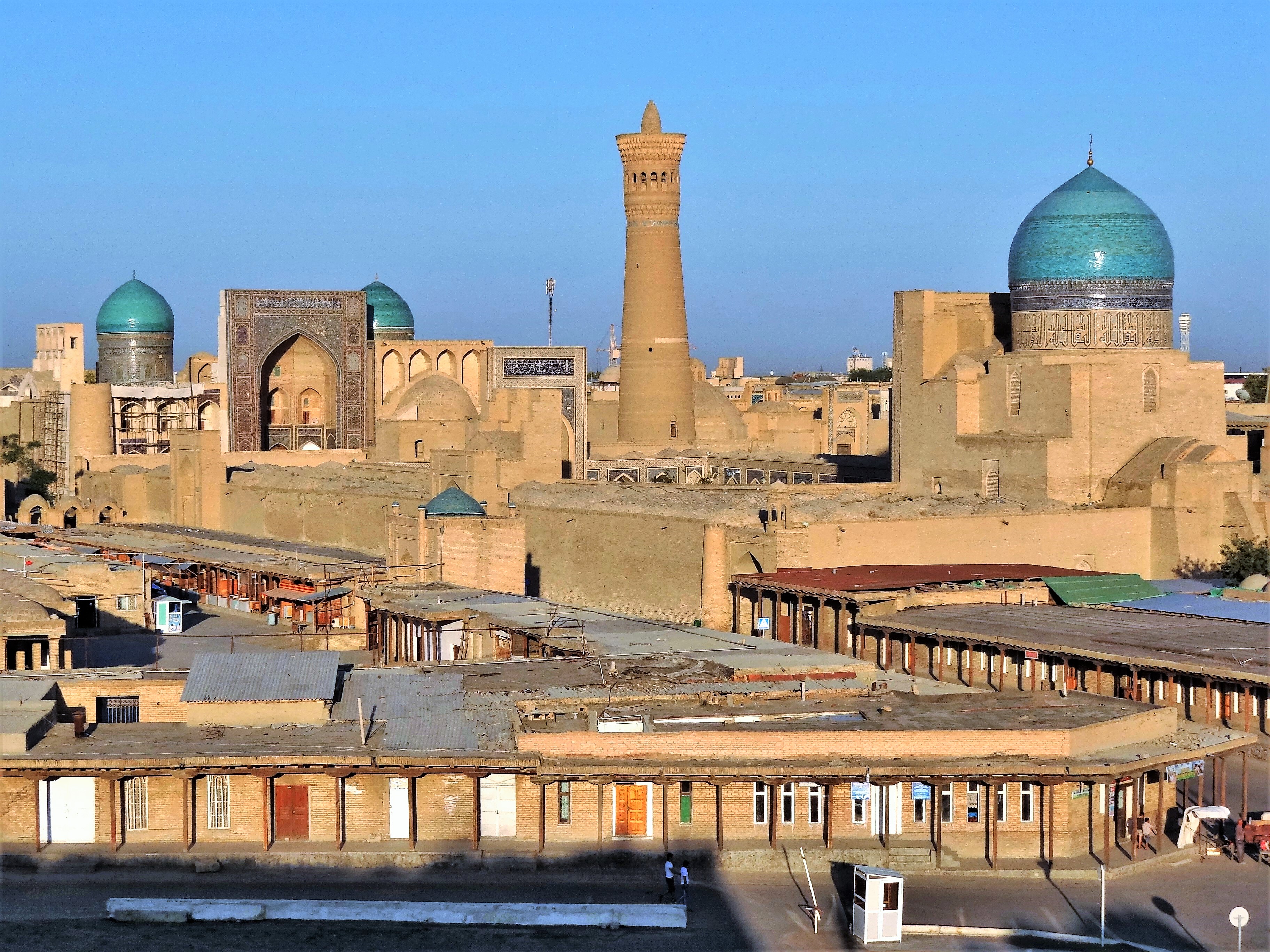Bukhara

A city in Uzbekistan, with a long cultural history. Because it was located on the Silk Road, a route of trading between the East and West, it holds an important significance in the relation of those two parts of the world.
Overall in Bukhara there was a lot of fleeces, silk, cotton, leather, carpets and clothing which were all traded from there to other countries, as well as gold embroidery and metal work. Many of these crafts are still practiced in the city today.
In Alexander Burnes' Travels into Bokhara it mentions the British fascination with Central Asia, as it’s one of the main journals that relating the experiences of travelers in that region. For Burnes, for example, it was “important to tally the gifts—and his descriptions, with their lists of colors and cloths, are a kind of enumeration too, no less than the precise nature of prices of imported Russian and English goods at the bazaars that he lists further into his journey” (16). He mentions the different possessions they had to pass as natives, or as poor natives in comparison when they didn’t have enough while travelling, and how he was sent no less than 24,000 rupees in cash by the Maharaja once. An interesting point from the book, and of Burnes himself, is the well-known portrait of him in Bukharan clothes, where the caption under the reproduction of the painting reads merely “The Costume of Bokhara”. He also, in his journal of travels, mentions briefly “that he was not permitted to wear Muslim garb in his account of Bukhara” (46).
Burnes emphasizes many of the material things he is offered in his travels, and how those were the main (almost only) reason for British people to travel to these “strange, otherworldly lands”. This expresses the same exoticism and orientalism that was prominent in this time, where there was this fascination with this image of the Orient, seen as a place of wonders and wealth. Famous authors, like Jane Austen, also are prone to fall into this idea. As an example, in Mansfield Park, where the place is supported by income from Sir Thomas’ plantation in Antigua, in which he is away attending to business. Antigua in this context, not unlike Bokhara and Burnes, shows this British attitude where they don’t see colonies, or other countries as independent nations, but as convenient farmland for British production of crops, or just as a place where to get rich, promoting the idea of exploitation and how the Orient’s most important trait was its unnaturalness when compared to the civilized British people. In Mansfield Park it is also presented in how the material goods from Antigua are technically needed to maintain the lifestyle of the Bertrams back in Britain, and how their values could be disregarded when out of the country, since exploitation and the like were a must to make their own lives flourish.
Works Cited
Najarian, James. “James Najarian, ‘Alexander Burnes's Travels into Bokhara (1834)".” BRANCH, July 2019, https://branchcollective.org/?ps_articles=james-najarian-alexander-burne....
Parent Map
Coordinates
Longitude: 64.455576900000
